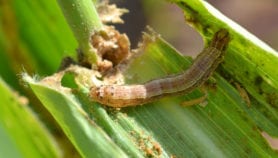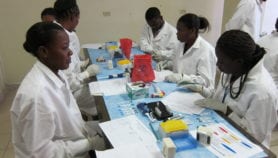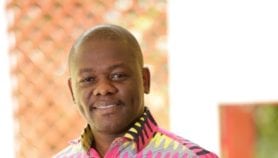Send to a friend
The details you provide on this page will not be used to send unsolicited email, and will not be sold to a 3rd party. See privacy policy.
[MOMBASA] There is an encouraging emergence of goodwill towards science, technology and innovation among Africa’s political leadership, but what is now needed is collective commitment, said Yaye Kene Gassama, chairperson of the African Ministerial Council on Science and Technology (AMCOST).
Gassama made the comments yesterday (15 November) at the Third Ordinary Session of AMCOST in Mombasa, Kenya.
"We have been able to come up with political goodwill, but only collective commitment will enable Africa to achieve what they want to achieve in science, technology and innovation (ST&I)," she said.
Gassama urged the engagement of greater numbers of people in the implementation of national, regional and continental ST&I agendas, including scientists, policy makers and the general public.
She also requested monitoring mechanisms to gauge success and ensure transparency and accountability. This, she said, would help improve and expand Africa’s skilled scientific workforce and help build acceptance across all members of society.
Noah Wekesa, the Kenyan minister for science and technology, told the meeting that collective efforts could be guaranteed through the dissemination of all information.
He called for a reward scheme for excellence in ST&I, as well as improved opportunities for young people. "In order to maximise benefits, we must provide good opportunities for the young to learn the skills and implications of such knowledge," he said.
Wekesa also highlighted the need for more African women in the sector. He said African governments must make deliberate efforts to promote programmes to talented young women, and called for strategic partnerships to get more women involved in policymaking.
Elsewhere at the meeting, UNESCO announced plans for three science capacity building projects in Africa to enhance the ability of African Union member states to deliver science and technology programmes.
Walter Erdelen, UNESCO assistant director-general for natural sciences, said the projects will design new models for education in science, technology, engineering and mathematics, and disseminating information.













